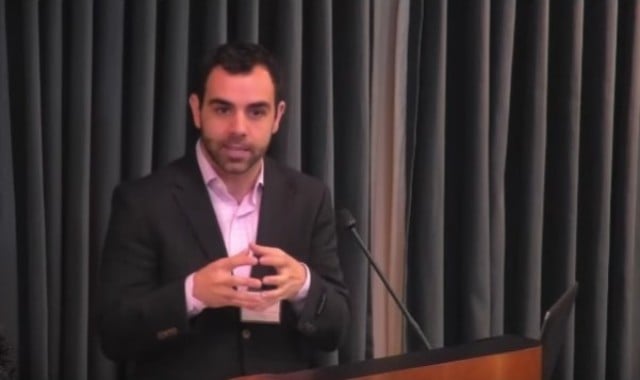Israel is taking action against those who tarnish its image. An alleged human rights activist was denied entry into the country.
Israeli authorities rejected a request from Human Rights Watch (HRW) for a work permit for its regional director, accusing the group of engaging in Palestinian “propaganda,” the group said Friday.
The decision was Israel’s latest step against so-called human rights groups and other advocacy organizations it accuses of anti-Israel bias.
Israel’s Interior Ministry issued its ruling this week, some six months after Human Rights Watch asked for a work permit for its New York-based Israel and Palestine director, Omar Shakir.
In a letter dated Monday, the Ministry said the group’s reports, “have engaged in politics in the service of Palestinian propaganda, while falsely raising the banner of ‘human rights.'” The Interior Ministry letter said the recommendation came from Israel’s Foreign Ministry.
Ministry spokesman Emmanuel Nahshon called Human Rights Watch a “blatantly hostile anti-Israeli organization whose reports have the sole purpose of harming Israel with no consideration whatsoever for the truth or reality.”
“There is no reason to give a visa to a person or organization that wants to hurt the country. We are not masochists and there is no reason we should keep doing that,” he said.
He said the decision was connected solely to the group’s activities and had nothing to do with the ethnicity of Shakir, a US citizen of Iraqi descent.
Shakir, a Stanford-educated lawyer, has also done work on human rights in Egypt, Pakistan and at the US detention center at Guantanamo Bay, according to his biography.
Shakir is a consistent supporter of a one-state framework and advocate for BDS (boycotts, divestment, sanctions) tactics, fitting the longstanding HRW practice of hiring anti-Israel activists to serve in key positions relating to Israel.
On Youtube, Shakir can be seen calling Israel an apartheid state and promoting anti-Israel boycotts.
The New York-based group monitors human rights in over 90 countries, including nations throughout the Middle East. It said it has direct access to most of these countries, with the exceptions of Cuba, Egypt, Iran, North Korea, Uzbekistan and Venezuela.
“The denial letter came as a shock, given that we have had regular access to Israel and the West Bank for nearly three decades and regularly engage Israeli authorities,” Shakir said in an email. “Branding us as propagandists and fake human rights advocates puts Israel in the company of heavily repressive states like North Korea, Iran and Sudan that have blocked access for Human Rights Watch staff members.”
Nahshon said the group’s local staff could continue to operate and publish reports.
Unfair and Excessive Focus
In Washington, State Department spokesman Mark Toner said the US did not agree with Israel’s characterization of Human Rights Watch.
“HRW is a credible human rights organization and even though we do not agree with all of their assertions or conclusions, given the seriousness of their efforts, we support the importance of the work they do,” Toner said.
Human Rights Watch has published a series of reports that were highly critical of Israel, especially after wars or periods of heightened violence with Palestinian militants. For instance, it accused Israel of committing war crimes during fighting with Hamas militants in the Gaza Strip in the summer of 2014. Israel harshly rejected the findings of that report.
The group has also issued reports critical of the Palestinians. For instance, last year it accused the internationally backed Palestinian Authority in and the rival Hamas terror group in Gaza of arbitrarily detaining journalists and activists. It has also criticized executions carried out by Hamas.
But Israel has long accused the group, as well as other human rights groups, of excessive and unfair focus.
Iain Levine, program director at Human Rights Watch, called Israel’s decision worrying.
“The Israeli government is hardly the only one to disagree with our well researched findings, but efforts to stifle the messenger signal that it has no appetite for serious scrutiny of its human rights record,” Levine said. “We hope the Israeli authorities will reverse this decision and allow both international and domestic human rights groups to work freely.”
By: AP





